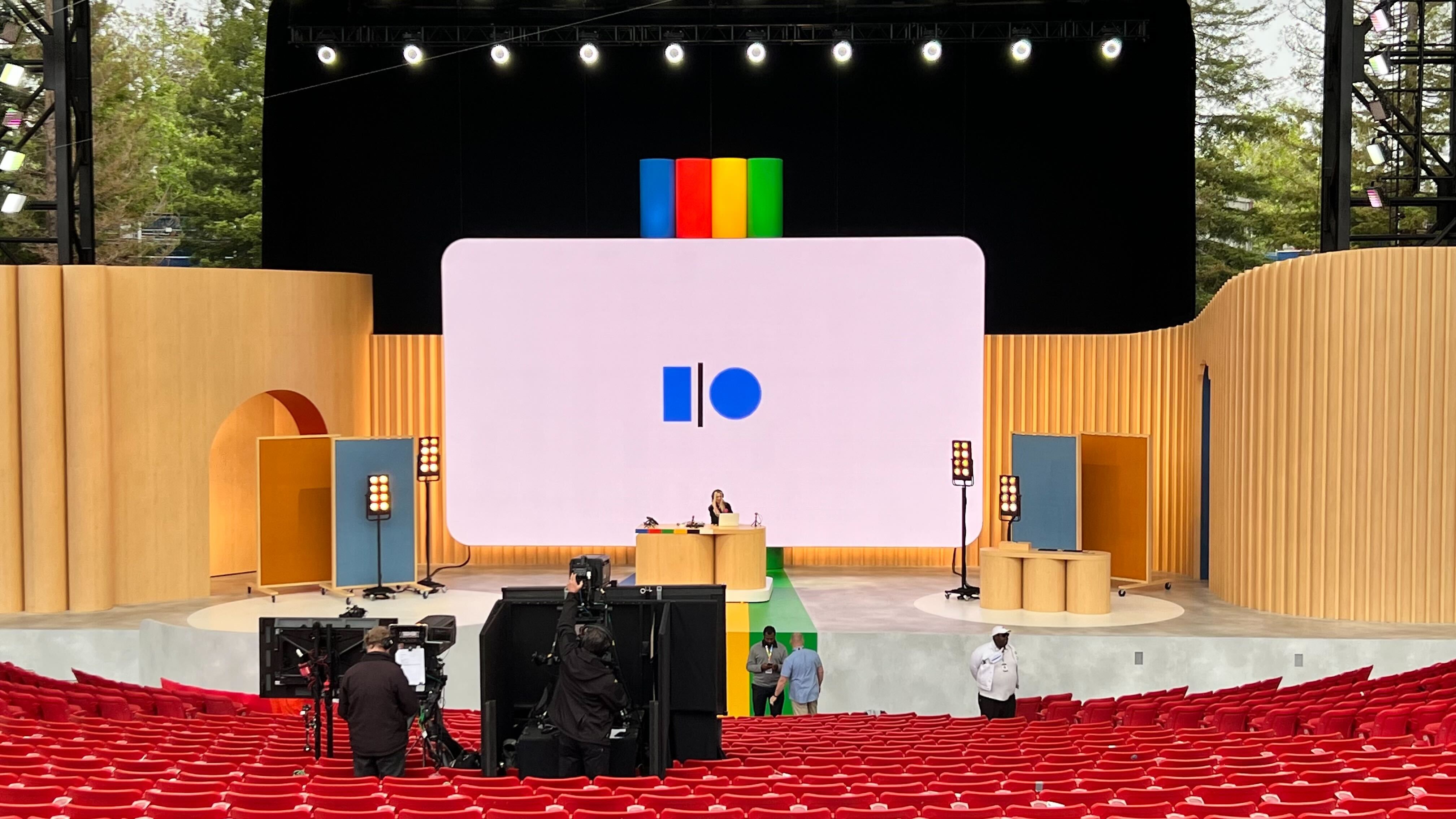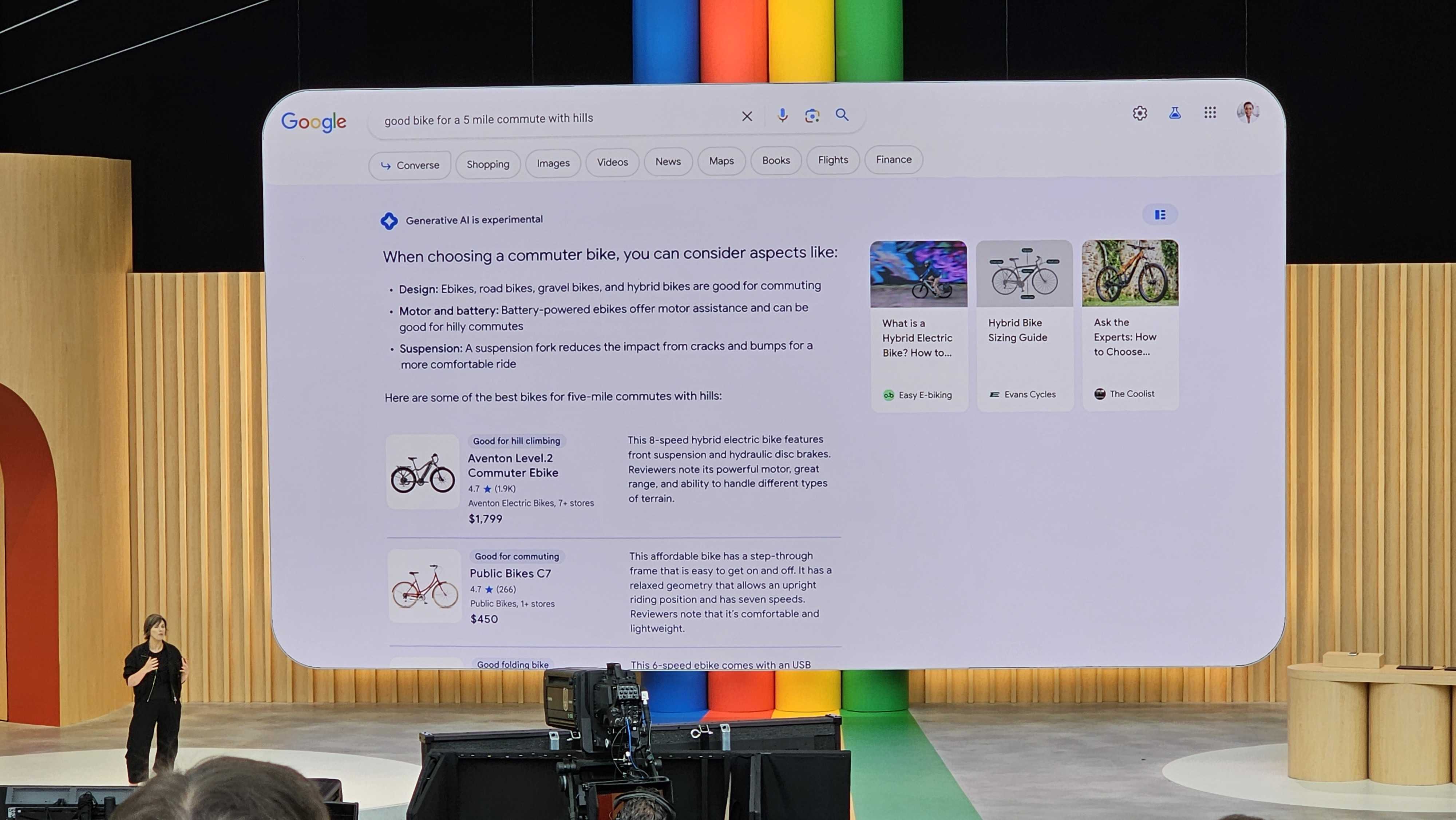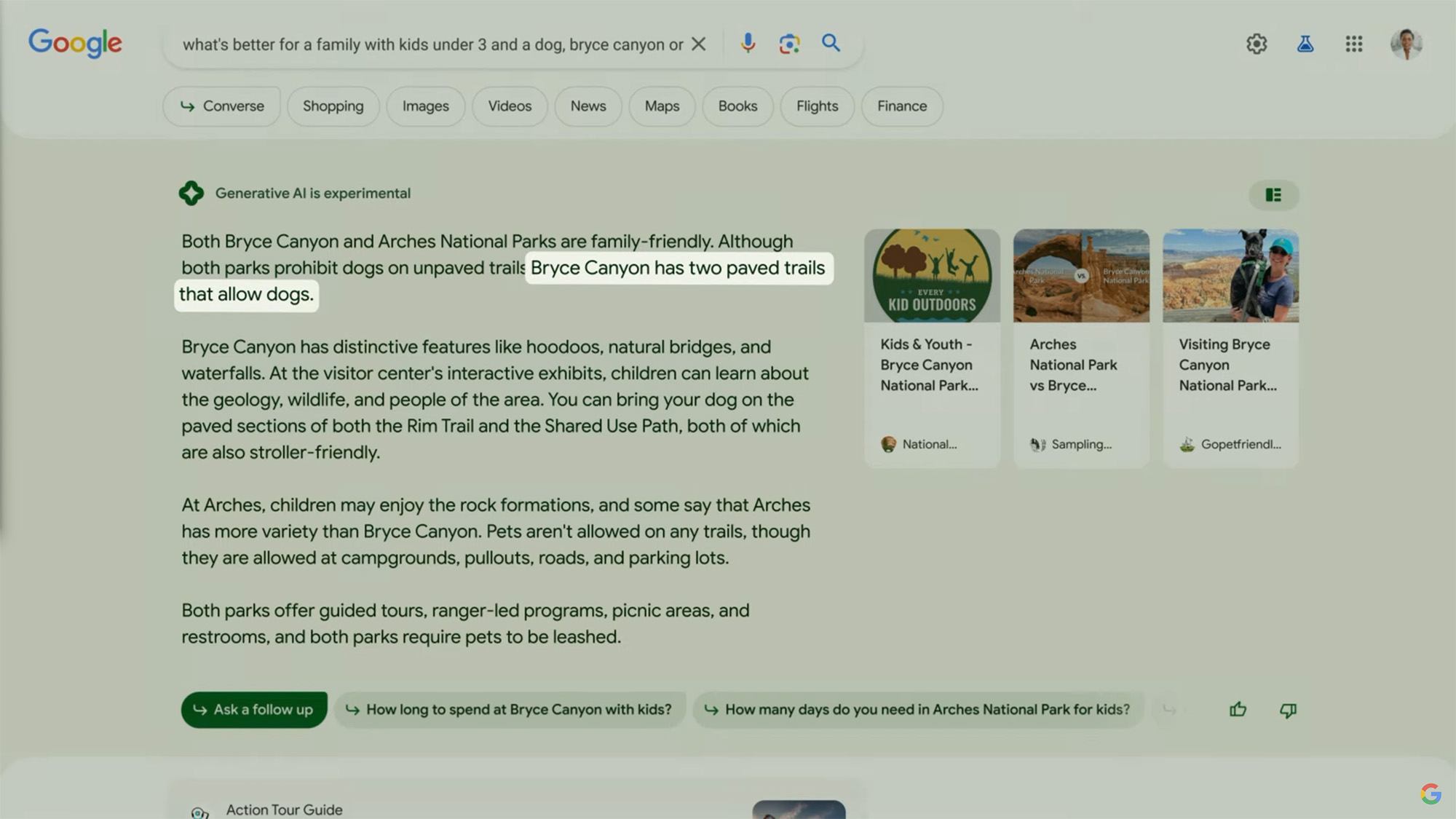For Google, there is no such thing as too much AI
There should've been a Google I/O "every time someone says 'AI'" drinking game

Sign up for breaking news, reviews, opinion, top tech deals, and more.
You are now subscribed
Your newsletter sign-up was successful
If you tuned in to Google I/O 2023 for AI, you would not have been disappointed. Google managed to pack more "AI"s per minute than there may be artificial intelligence applications and services in the world. It was as if Google saw what Microsoft was doing with Bing AI and said, "You think that's AI and search? We'll show you some AI that'll put hair (generative, of course) on your chest."
There was not, it seemed, a single sentence uttered during the two-hour-plus keynote that didn't feature "AI." But if that over-saturation of Large Language Model (LLM) activity, much of it driven by the new PaLM 2, made it hard to keep track of exactly what Google is up to, I came away with an understanding that Google is not only deadly serious about AI, but also about beating back Microsoft's encroachment on its near total ownership of the search market.
Waking a sleeping giant
As I predicted, though, Microsoft's impressive showing and near constant updates of its Bing AI, (a GPT-4-powered chatbot) stirred the sleeping giant and Google answered on Wednesday with a laundry list of generative integrations that tap into its richest knowledge graphs for search and shopping.
Soon, Google search will undergo its most significant update in its 25 years history with a massive generative response box at the top (below the ads, of course) that will let you engage with search in ways that, well frankly, will feel a lot like the search results you've been getting from Bing AI. But make no mistake, when it comes to search, Microsoft is no Google, and Bing is no, well, Google.
AI is now essentially living rent-free in Google's mind.
At the same time, Google all but repeated Bing's most recent AI update, adding multimode search to its Bard chatbot, which now has the ability to return image results sourced from Google Search and to respond to image prompts with the help of Lens, which will identify the images and spit out text so Bard can read and analyze the images.
That kind of Google app AI cross-pollination was a persistent theme throughout the morning as Google appeared to announce that virtually every app and service it's ever built is integrating or working with AI.
Many of the apps, like Docs, Sheets, and Slideshow will work with what Google termed a sidekick, basically a righthand column of copiloting AI that can help with virtually any project.
Sign up for breaking news, reviews, opinion, top tech deals, and more.
Google's AI will soon stand ready to assist in email, slideshow notes, generate music, and fix every part of a photo until whatever's real no longer matters, just as long as you have the image of your dreams or imagination.

Can I interest you in some AI?
At some point, I lost track of all the ways that Google, Google DeepMind and its various generative models would work with Google products. AI is now essentially living rent-free in Google's mind.
There clearly is no new product or service that can be released without integrating or at least mentioning how AI sits somewhere inside of it. It might be in Google's imaging capabilities like Magic Eraser which Google generously spreads across its entire Pixel line, including the new Pixel Tablet and Pixel Fold, or its growing language translation capabilities.

Google did talk a fair bit about responsible AI, but some of that appears at cross purposes with its aggressive development efforts. At one point, Google appeared to box itself in with a startling universal video translator AI. In the video demo a woman spoke in English in a video and then the AI not only translated but then synced the translated audio to the video, making it appear as if the woman was almost speaking her native language.
After the brief demo, Google promised that the system has guardrails and only trusted partners would have access. I, naturally, wondered if any part of the LLM was open-sourced and how hard it would be for someone else to recreate it and do what Google was trying to prevent: develop deep fake videos in almost any language.
No matter where you stand on the rapid growth of AI, there's no denying this inflection point. Google is officially all in, in apps, products, and all sectors, on AI. There's no going back and I hope we're all ready for it.

A 38-year industry veteran and award-winning journalist, Lance has covered technology since PCs were the size of suitcases and “on line” meant “waiting.” He’s a former Lifewire Editor-in-Chief, Mashable Editor-in-Chief, and, before that, Editor in Chief of PCMag.com and Senior Vice President of Content for Ziff Davis, Inc. He also wrote a popular, weekly tech column for Medium called The Upgrade.
Lance Ulanoff makes frequent appearances on national, international, and local news programs including Live with Kelly and Mark, the Today Show, Good Morning America, CNBC, CNN, and the BBC.